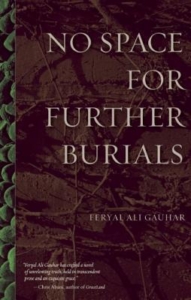 Decades of imperialism have left Afghanistan and its people devastated. But the fall of the Taliban, and the much touted ‘liberation’ of Afghanistan, has produced a new spate of novels, films and other artistic media dealing with the ‘Afghan victim’.
Decades of imperialism have left Afghanistan and its people devastated. But the fall of the Taliban, and the much touted ‘liberation’ of Afghanistan, has produced a new spate of novels, films and other artistic media dealing with the ‘Afghan victim’.
And when I say ‘Afghan victim,’ I mean a nauseating overdose of burqa-oppression, Taliban brutality and other Oriental tragedies. Not only are these subjects sexy they tie into the global imperatives of terror and Islamism but they also artfully exonerate the aggressor, whether it is the Soviets, US imperialism or NATO. As such, the bulk of this new subgenre of fiction addresses the Western, English-speaking world; writing about reluctant and not-so-reluctant fundamentalists sells ‘Over There’. Meanwhile, literature is turning into a grand extravaganza of marketing, prizes, commoditization and short-lived shelf lives.
Feryal Ali Gauhar’s second novel, No Space for Further Burials, attempts to break free of many of these stereotypes. A trained economist, filmmaker and former UN Goodwill Ambassador, Gauhar opts to publish her book in India , not a Western outlet. More importantly, No Space inverts the oft-hackneyed themes of displacement, war, America and the suffering Afghans, ultimately treating these grim motifs by focusing on the sanity and insanity implicit within personal narrative.
Gauhar’s protagonist (and narrator) is not the radical Muslim torn with existential dilemmas, as might typically be expected. Rather, he is a small town US army medical technician who has been captured by Afghan rebels and locked up in a local insane asylum. The asylum is a microcosm of Afghanistan itself.
It is September 2002, one year after 9/11 and the US invasion of Afghanistan. The narrator, an American who like millions of others has been disempowered by the war machine, has no particular ideological pretences about the war for ‘freedom’. As his captivity drags on, he realizes the word means nothing to him at all. “No one knows which is outside and which is inside, sister. No one knows which is the earth and which is the sky,” the narrator tells a woman at one point.
When the novel begins, the reader is given no hints as to who the asylum inmates are . Refugees or derelicts, fugitives or simple folks declared insane, we don’t know. All that is certain is that the asylum has imbued upon its tenants a constant state of loss their personal, civic and political lives have all been violated. As the story progresses, we find out how each inmate has landed in this dilapidated, sub-human institution, which acts both as a clever device to keep the plot and action taut and a comment on the sheer lunacy of the world and Afghanistan’s place within it.
Gauhar uses the captive narrator’s journal ostensibly kept to fight the loneliness of imprisonment as a literary device with which to draw in the reader. It is not a particularly unique approach, but it works remarkably well in No Space . The journal is simple, sometimes poetic and almost always haunting. The gravity and cliche of war are subtly conveyed through the myriad lives within the asylum. The personal stories together provide a reflection of the collective complicity so often present in the perpetuation of violence. The inmates’ tales of displacement (including the US medic’s own) mirror the dislocation of oppressed and war-stricken people in Afghanistan and, indeed, throughout history.
Readers are asked to empathize with the narrator as he strives to cope with his dire circumstances; the irony is almost heavy-handed. For it is the American ‘liberator’ who is confined within “a tomb for the living”. We find out that the medic aspired to be a writer before he was sent to Afghanistan; but in recounting the miseries of war, he loses the ability to truly communicate. Instead, his language is the language of the asylum, a language that cuts across nationality and culture. Gauhar’s novel indeed has an element of magical realism, for the ability of people to understand their suffering signifies the characters’ ultimate humanity.
Yet there is also a darker message hereone that insists humanity is unable to heal itself. From the colonial Great Game in Afghanistan to the brutalities of the Cold War, violence seeps into the collective conscience through generations, eventually becoming a part of Reality. It is a curse endemic to the human condition, Gauhar stresses. It does not matter if you are an external or an internal victim.
If anything, No Space is too heavy. By book’s end, it has been hammered in that war has no victors; there is only a destroyed country and its people who have withstood the madness of it all. Still, Gauhar and her novel step out of cliche and articulate a global voice. In the age of the constructed ‘Islamic Threat’ the novel deftly attacks the myth. War, violence and suffering in Afghanistan have had little to do with Islam. Even the ‘victor’ is in effect a victim, and the narrator’s predicament becomes a metaphor for all that Afghanistan and a war-ravaged world stand for.
An earlier version of this review appeared in the Friday Times. Also posted at Pakistaniat.



